
The Triumph TE-1 electric motorcycle project is progressing even closer to production after the company showed off the latest design and announced that Phase 3 development is now complete.
And it’s been a long time coming.
We’ve been following the British manufacturer’s slow but steady march toward an electric motorcycle for what feels like ages now.
It started with the company testing the waters back in early 2019 as Triumph gently prepared their customer base for the inevitability of an electric motorcycle offering. Soon afterward, Triumph officially announced that the project had begun.
The next few years were spent with slow and sometimes unsteady updates as Triumph joined up with partners like Williams Advanced Engineering (WAE), Integral Powertrain, and even the University of Warwick.
Triumph appeared to get a bit distracted in the middle of it, somehow managing to design and roll out an electric bicycle along the way.
But that didn’t stop progress on the TE-1 motorcycle project, as eventual design sketches and more technical details continued to drip out of the company’s Hinckley-based headquarters in the UK.
Now after all these years, we’re getting our first real look at the prototype Triumph TE-1 electric motorcycle as the company pulls off the sheet for the big unveiling.
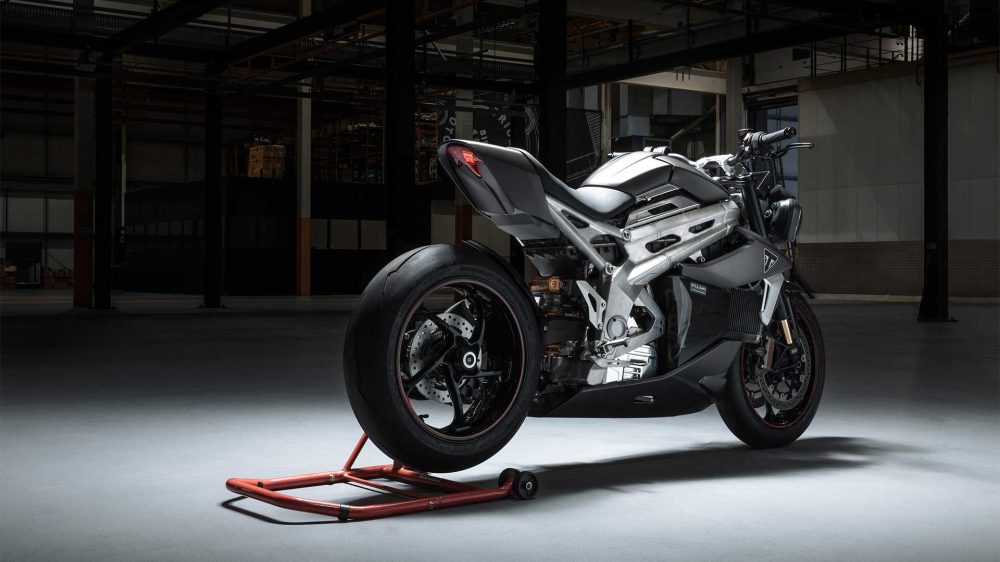
The reveal marks the end of Phase 3 of Triumph’s development plan for the TE-1 project.
It also gives us our best look yet at exactly who did what on this amalgamation of an e-bike development operation.
According to Triumph, the motorcycle manufacturer handled most of the bike-based development in house. That consisted of the final chassis design including the frame, rear swingarm, cockpit, panels and wheels. Triumph also handled the final drive system including the transmission and Gates Carbon belt drive, electronics, Öhlins suspension, Brembo brakes, and the proprietary Triumph motorcycle control software.
The motorcycle manufacturer turned to WAE to handle most of the electronics. That included the final design of the prototype battery pack that incorporated “dedicated cell packaging for optimum center of gravity,” as well as the vehicle controller unit, DC-DC converter, integrated cooling, charge port, and the styled carbon covers.
Integral Powertrain was tasked with the design of the prototype powertrain with its scalable integrated inverter and its electric motor with silicon carbide switching technology, which features Integral Powertrain’s integrated cooling design. That motor is expected to put out around 80 kW (107 hp) of continuous power and comes with a peak rating of 130 kW (174 hp). That would put it above and beyond the power of leading American electric motorcycles like those from Harley-Davidson’s LiveWire and Zero Motorcycles.
Warwick University was on the hook for the pre-live trial simulations, with Triumph reporting that “all results [indicated] that the project is on course to deliver the intended performance and durability outcomes.”
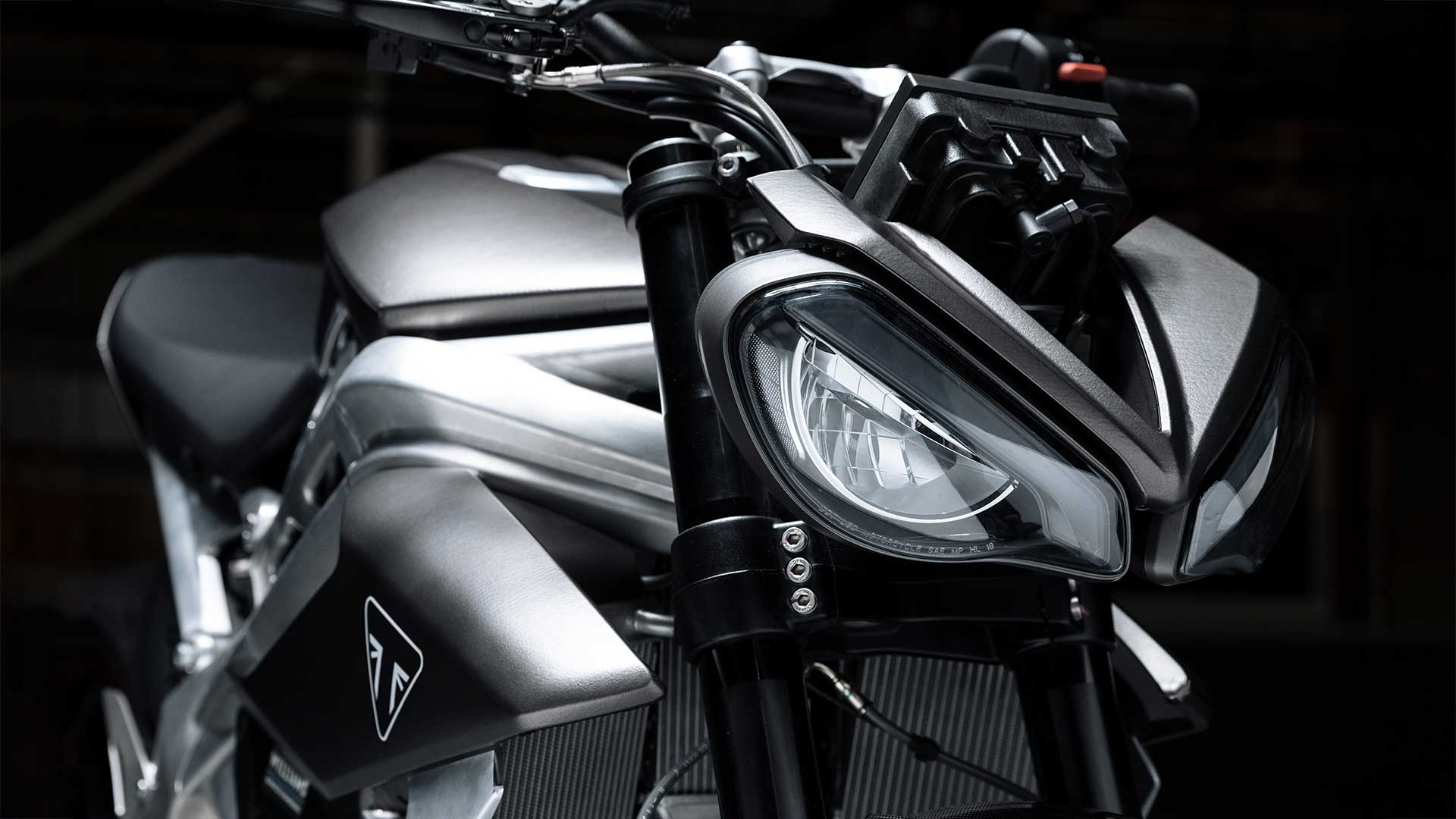
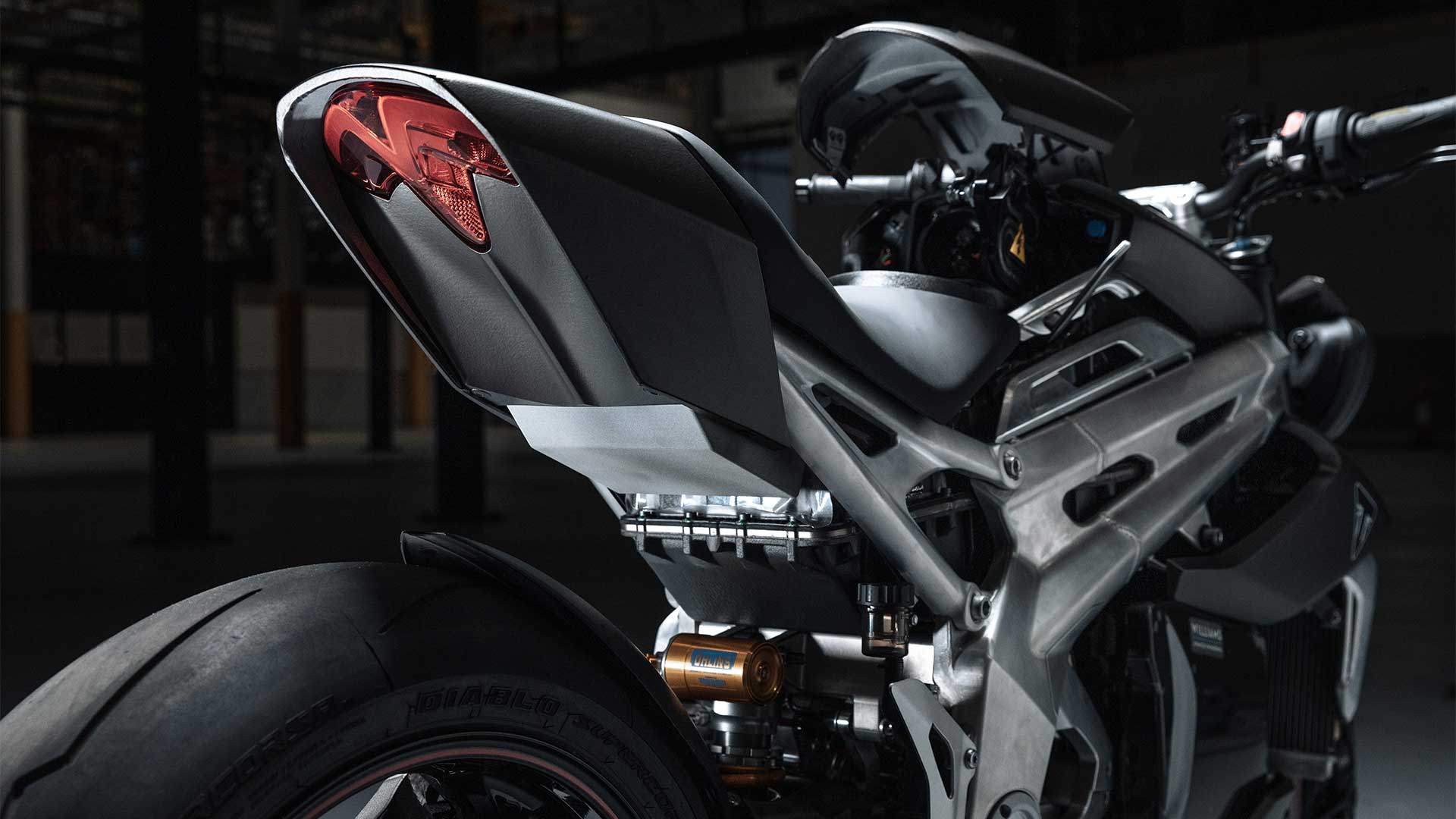
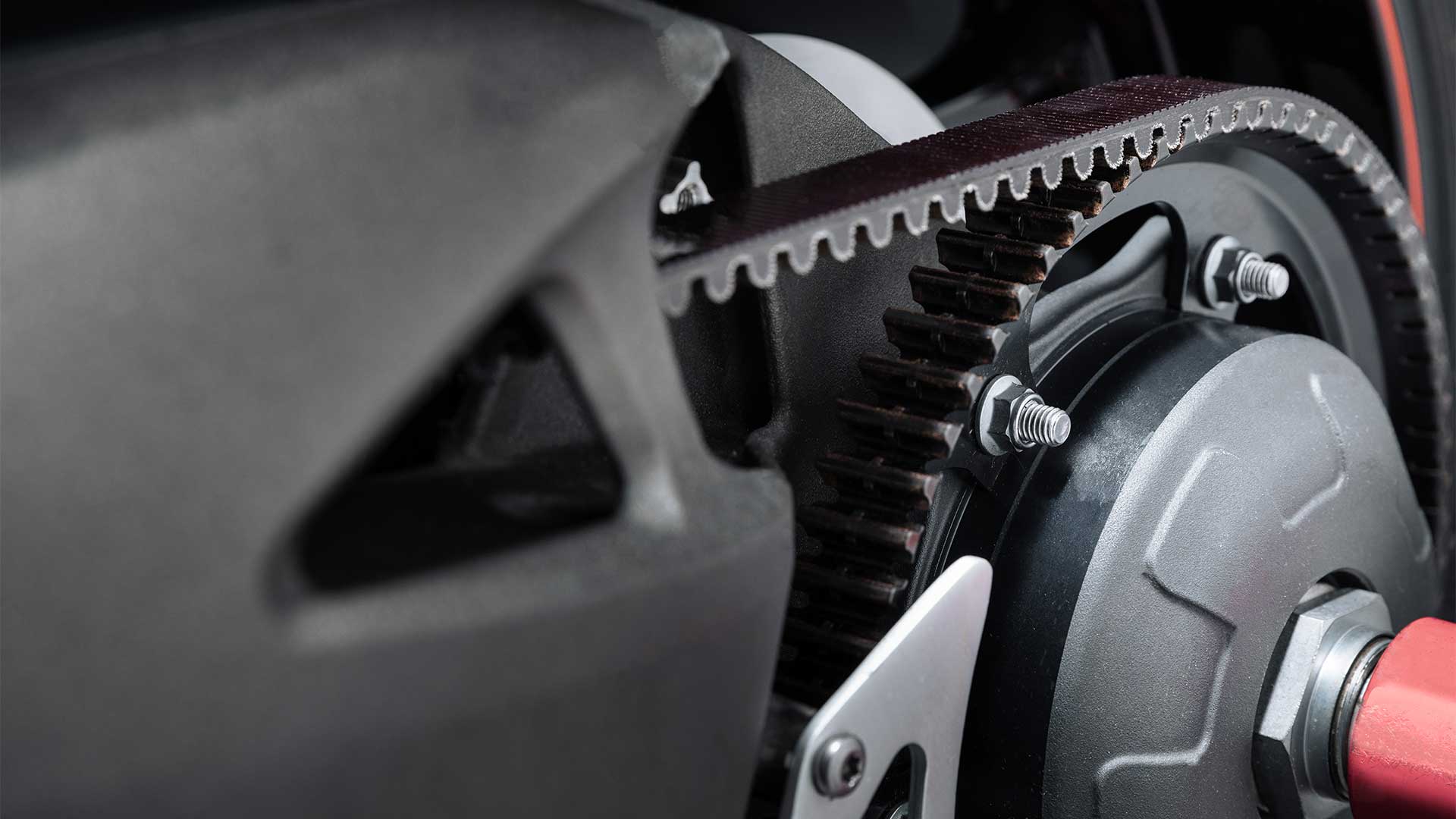
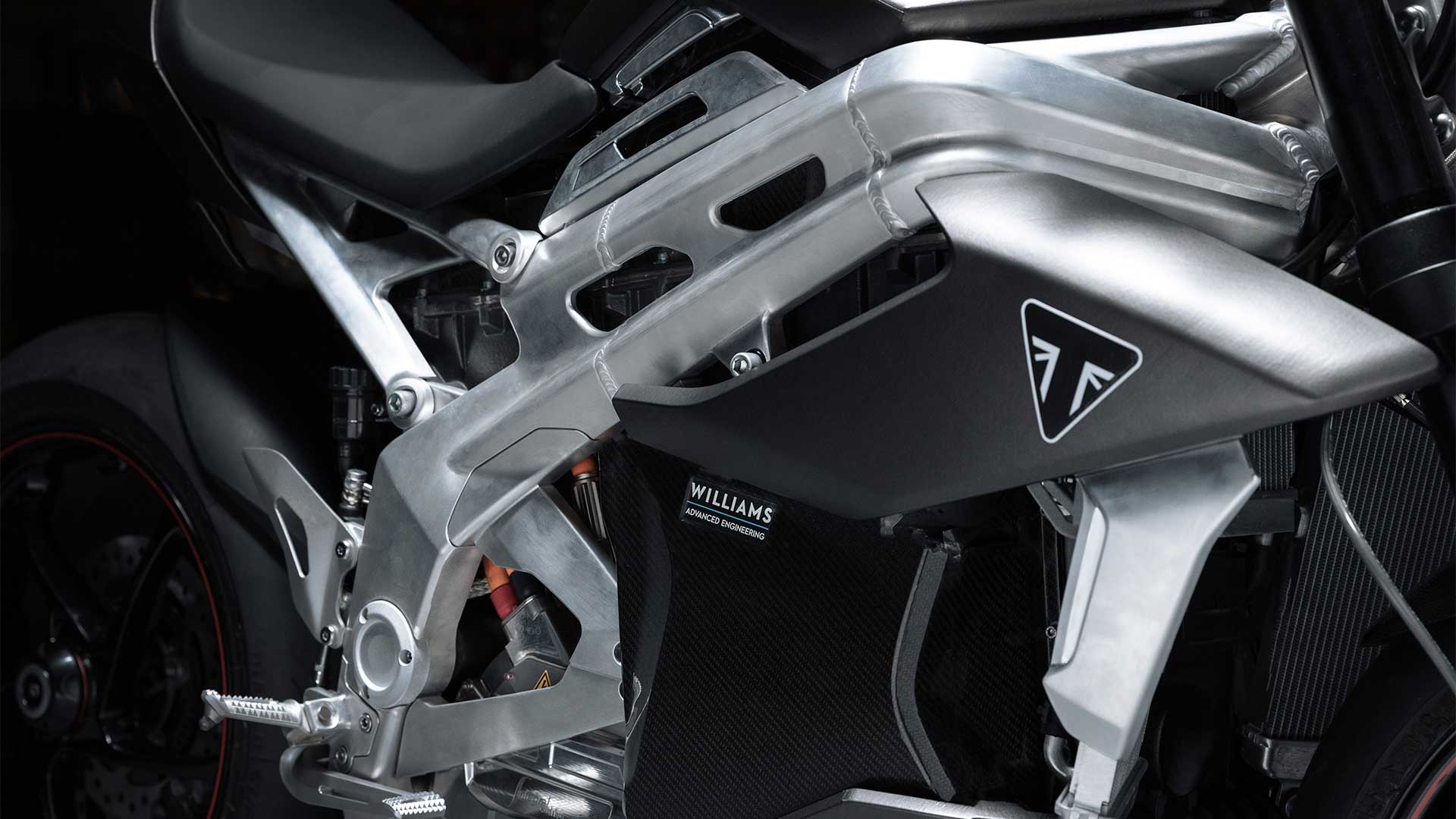
Phase 4 of the development cycle will come next, as Triumph’s chief product officer Steve Sargent explained:
During phase 3 we have focused on building the physical foundation of Triumph’s first electric prototype motorcycle. I am pleased with the outcome of Triumph and the TE-1 partners’ efforts in creating a demonstrator bike that is not only visually so desirable with clear Triumph DNA, but also packaged with an exhilarating and thrilling brand-new electric powertrain that has such potential for the future. I look forward to continuing the development of this demonstrator vehicle through phase 4 and using our knowledge and capabilities to bring all of the partners’ cutting-edge technology together into a final result which will guide Triumph’s electric strategy for the future. Our experience tells us that at this stage of a project there is no substitute to genuinely riding a bike when developing driveability, handling and character, and we have ambitious targets focused on delivering a riding experience that is new and exciting, but ultimately intuitive and familiar. I am really looking forward to my first opportunity to ride the completed prototype.
Triumph expects Phase 4 to take around six months, and will include a variety of track testing variables.
Areas to be tested and examined include throttle calibration, powertrain performance mapping, power and torque output, range and battery consumption assessment, rider mode development, software functionality validation, and thermal optimization.
The bike is expected to receive its final body design after the completion of Phase 4, meaning the prototype we’re looking at now may still undergo significant aesthetic updates before it reaches the showroom floor.
And from the sound of Triumph’s CEO Nick Bloor, he’s pretty jazzed to see that come to fruition:
It has been truly exciting to see the progress made during phase 3 of Project Triumph TE 1 with the final prototype motorcycle now going into real life testing. Everyone involved at Triumph are proud to have been part of this innovative British collaboration. Personally, I am thrilled with the results we have already achieved with our partners, and the exciting preview of the potential electric future to come. We look forward to continuing the ambitious and innovative work on the TE-1 demonstrator prototype through the live testing phase and sharing the outcome with Triumph fans across the world.

As you can imagine, there are still no firm dates being floated for when riders can expect to see a production-ready version of the TE-1 project.
But Triumph’s progress is quite promising and shows a real commitment to remain in the race with ever increasing competition in the electric motorcycle space.
We’ll be sure to keep you up-to-date with the latest news as the Triumph TE-1 project continues rolling ever closer to production.
Until then, let’s hear what you think! Share your thoughts on Triumph’s first electric motorcycle development project in the comments section below.
Subscribe to Electrek on YouTube for exclusive videos and subscribe to the podcast.
Author: Micah Toll
Source: Electrek



